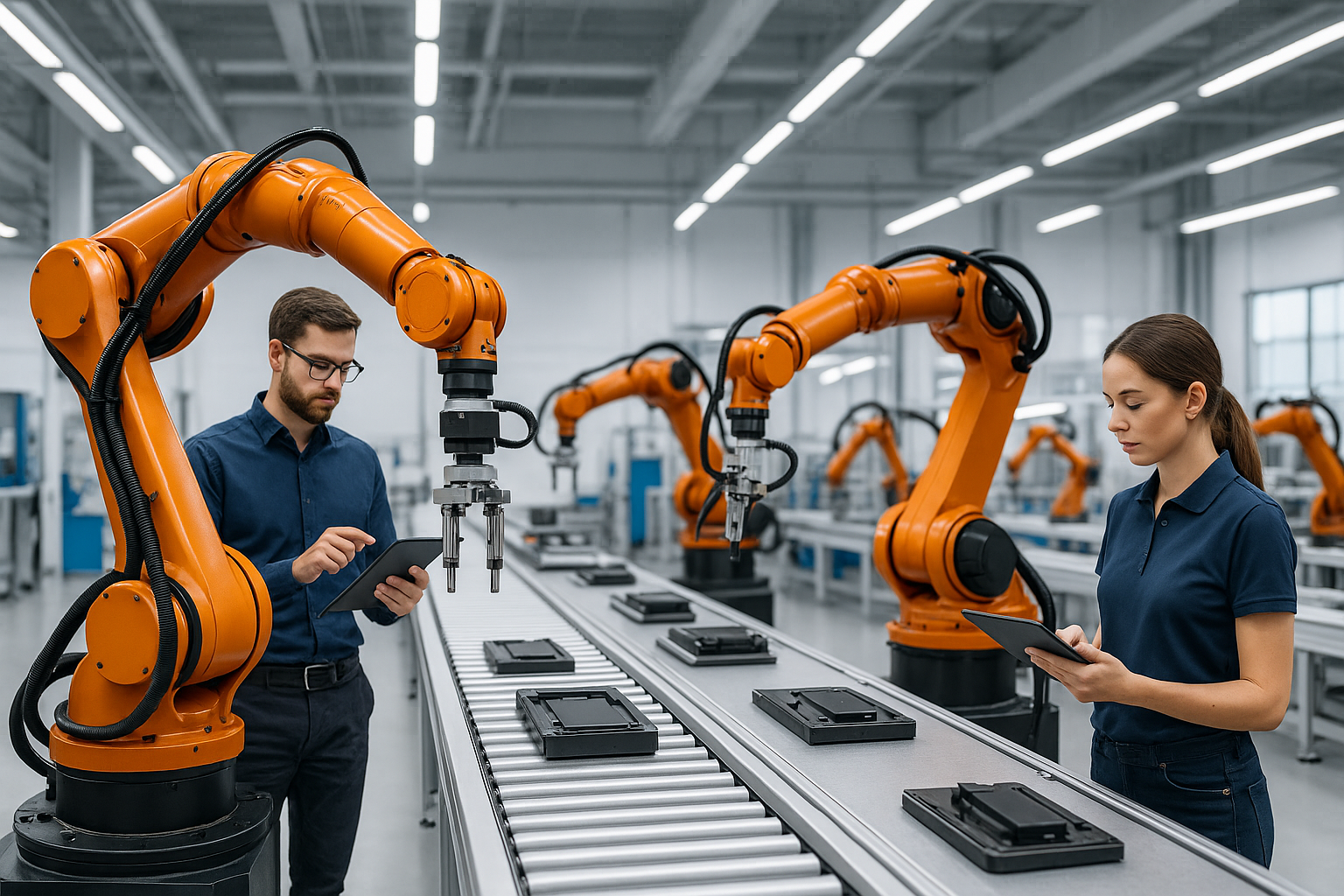Skyrocket Efficiency with Industrial Automation USA Solutions
Skyrocket your operational efficiency by exploring the latest industrial automation solutions in the USA, and see these options transform your business landscape by offering unmatched productivity and cost savings.

Understanding Industrial Automation
Industrial automation involves the use of control systems, such as computers or robots, and information technologies for handling different processes and machinery in an industry to replace human intervention. This technology is pivotal in enhancing productivity, improving quality, and reducing operational costs. In the USA, industrial automation has become a cornerstone of manufacturing and production, pushing industries towards the future with smart factories and advanced robotics.
The Benefits of Industrial Automation
The primary advantage of industrial automation is the significant increase in production efficiency. Automated systems can operate 24/7 without fatigue, leading to a higher output rate compared to manual operations. Additionally, automation reduces the risk of human error, which can lead to costly production mistakes. According to a study by Deloitte, companies that have implemented automation have seen a reduction in production costs by up to 30%1.
Moreover, automation enhances workplace safety by taking over hazardous tasks, thus reducing the risk of workplace injuries. It also allows for better quality control, as automated systems can consistently perform precise operations, leading to a more uniform product.
Types of Industrial Automation
There are several types of industrial automation, each serving different needs:
- Fixed Automation: Also known as hard automation, this type is used for high-volume production with a dedicated set of tasks. It is characterized by high initial costs but low unit costs, making it ideal for mass production.
- Programmable Automation: Suitable for batch production, this type allows for reprogramming to accommodate different product configurations. It offers greater flexibility compared to fixed automation.
- Flexible Automation: This system can be easily reconfigured for different products, making it ideal for industries requiring frequent changes in production.
Cost Considerations and Financial Benefits
While the initial investment in automation technology can be substantial, the long-term financial benefits often outweigh the costs. Automated systems can lead to a reduction in labor costs, energy savings, and increased production efficiency. According to McKinsey, companies that have adopted automation technologies have reported a return on investment within two to three years2.
Additionally, many automation providers offer financing options or leasing arrangements to make the transition more affordable. Businesses are encouraged to browse options and explore financing solutions that best suit their financial strategies.
Real-World Applications and Examples
In the automotive industry, companies like Tesla have integrated advanced robotics in their production lines, significantly increasing their manufacturing speed and precision3. Similarly, in the food and beverage sector, automation is used to maintain hygiene standards and consistent product quality, as seen in companies like Coca-Cola4.
Exploring Industrial Automation Solutions
With a plethora of options available, businesses can explore a range of solutions tailored to their specific needs. From robotics to AI-driven analytics, the landscape of industrial automation is vast and varied. Businesses should visit websites of leading automation providers to compare solutions and find the best fit for their operational needs.
Industrial automation is not just a trend; it's a transformative force that can propel your business to new heights of efficiency and profitability. By following the options available and investing in the right solutions, you can ensure a competitive edge in the increasingly automated industrial ecosystem.